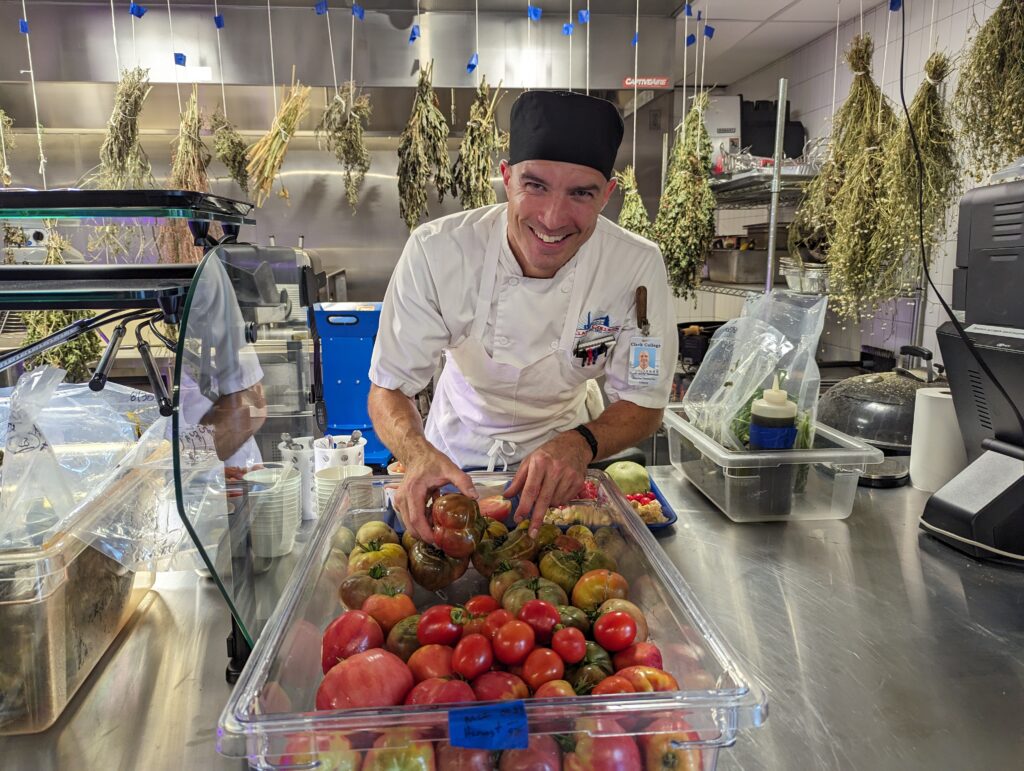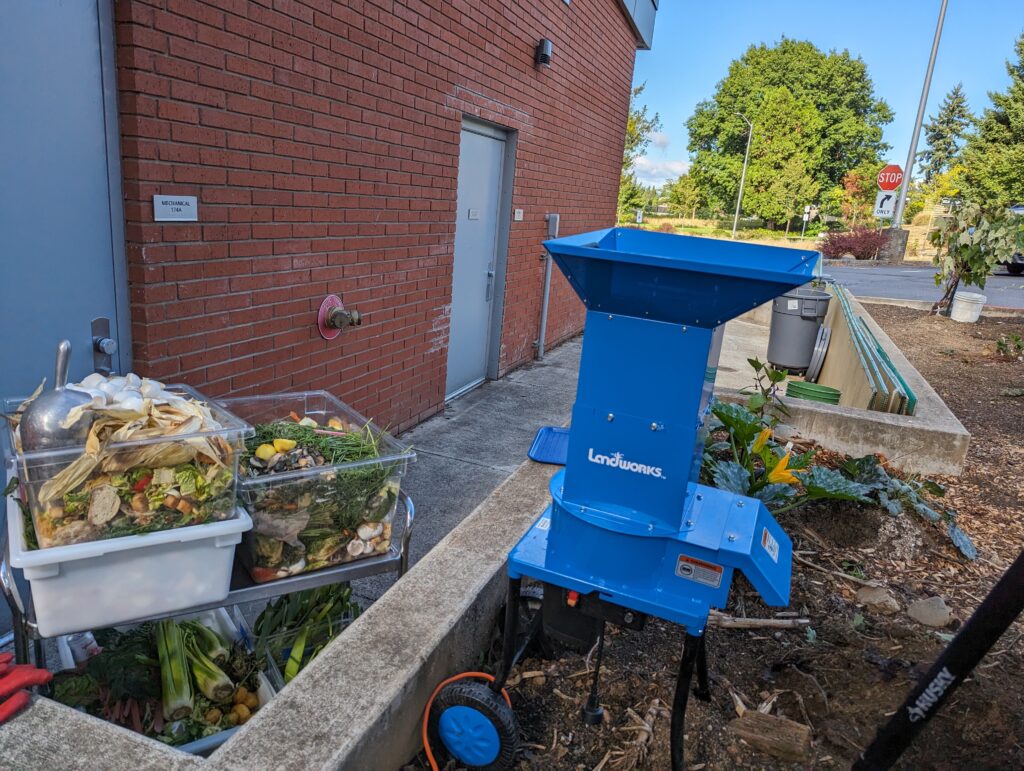Kitchen garden provides homegrown produce for cuisine and baking programs
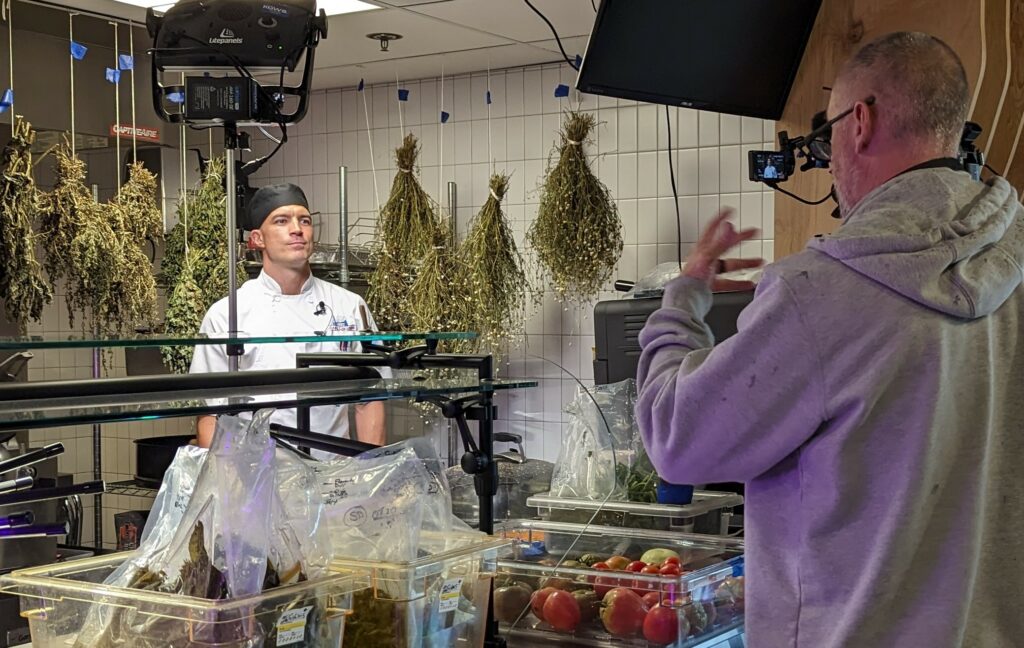
The kitchen garden that wraps around three sides of the Tod and Maxine McClaskey Culinary Institute at Clark College is reaping a bountiful, colorful harvest for students to use in their recipes. There is still time to visit the garden before everything is harvested.
Students and instructors from both the Cuisine Management program and the Professional Baking and Pastry Arts program have been harvesting herbs, vegetables and fruit throughout the summer. This is the second year the garden has produced a harvest.
“The tomatoes are really coming in and the squashes are still producing,” said Chef James “Sonny” Demartini, a cuisine instructor who spearheaded the kitchen garden project with Fay Shorten, a stockroom attendant in the college’s food services department.
Clark College renovated its culinary space in 2017, thanks to a grant from the Tod and Maxine McClaskey Foundation. The blueprints included plans for culinary gardens around all three sides of the building, but there was no funding for a garden.
Demartini and Shorten did not let the lack of funding become a barrier to creating a kitchen garden for their students. They cleared otherwise unused space outside the building and created gardens including fruit trees, berries, herbs and vegetables.
Demartini is a Midwesterner who grew up immersed in gardening. He rolled up his sleeves and got to work. Sweat equity from Demartini, Shorten and many others laid the groundwork. Demartini made a list of everything they would need to get started.
The first step was recruiting a team of volunteers to get to work amending the soil, including adding nutrient-rich composted produce from the college’s kitchens. The culinary programs save all organic food scraps—from carrot tops to eggshells. Demartini feeds the scraps into a blue Landworks industrial wood chipper he converted into a food waste mulcher. Rather than waiting for many weeks for the food to become compost, it chops food waste into rich, organic matter that immediately can be worked into the garden soil.
Demartini credits the college’s hard-working grounds crew that has provided much labor, including revamping an irrigation system. Demartini and Shorten found ways to get products at no cost. This includes getting deliveries of bark chips from pear trees removed from Washington State School for the Blind. Demartini also pointed to a stack of pear logs that students will use to cure and smoke meats.
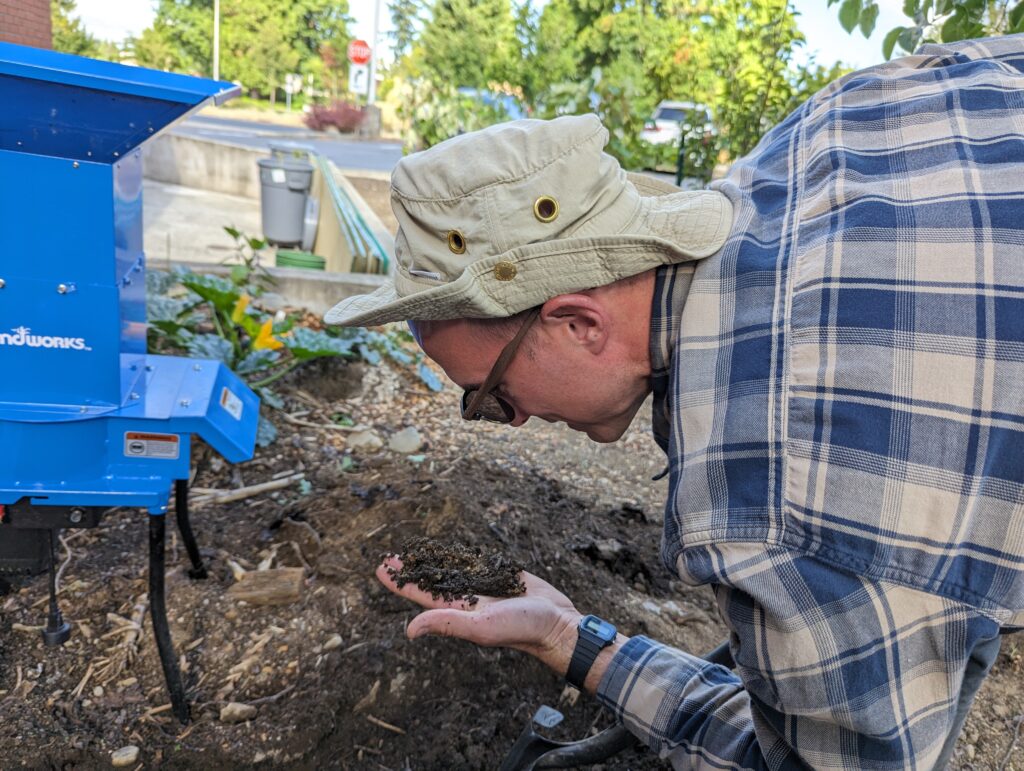
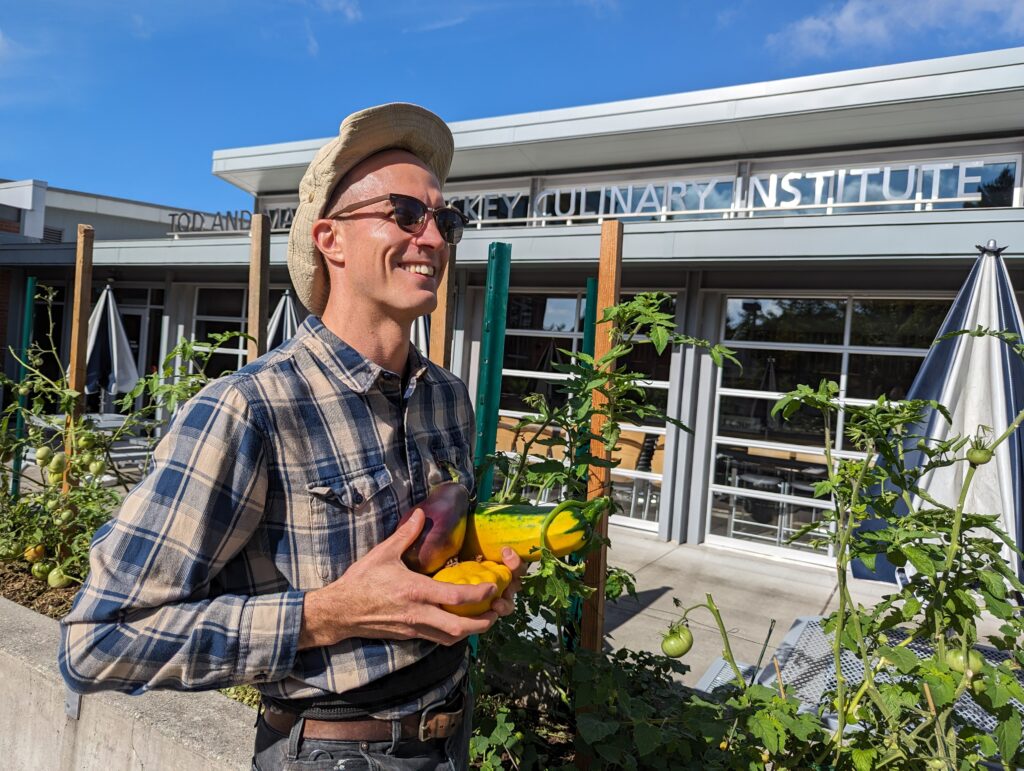
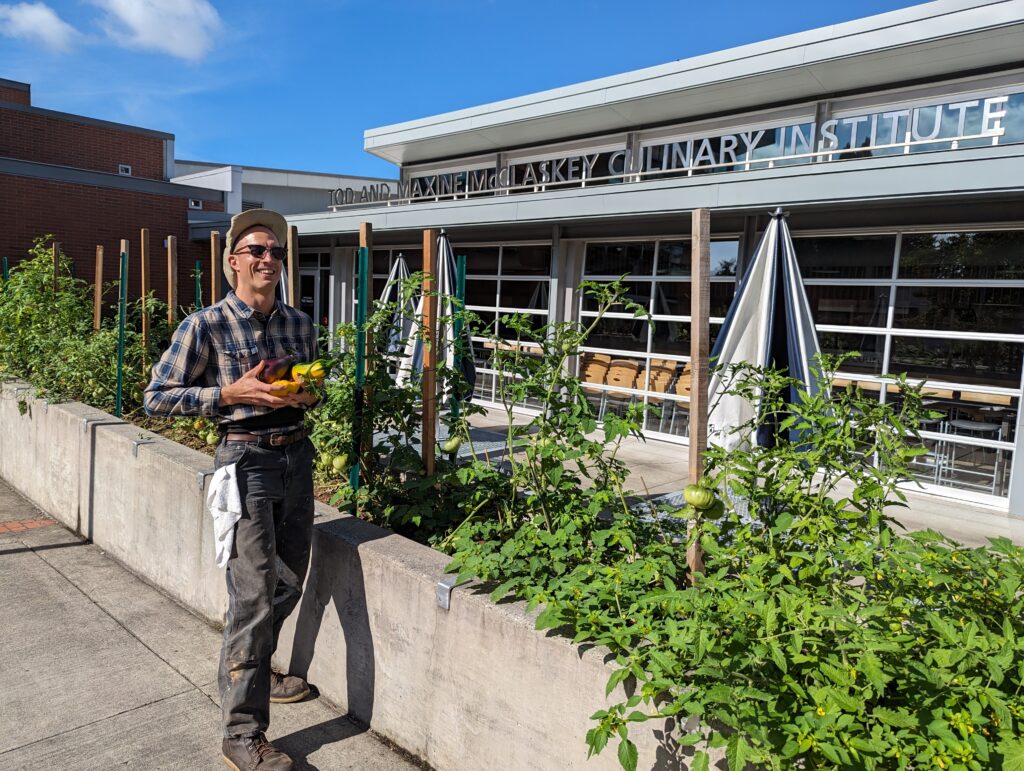
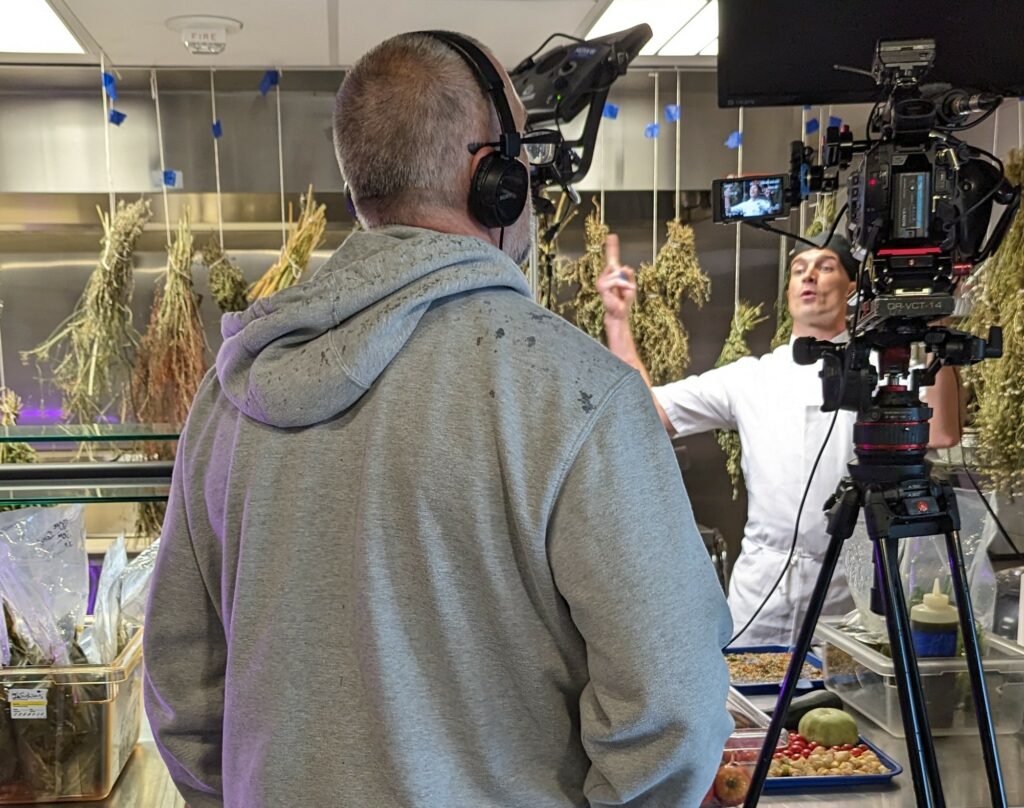
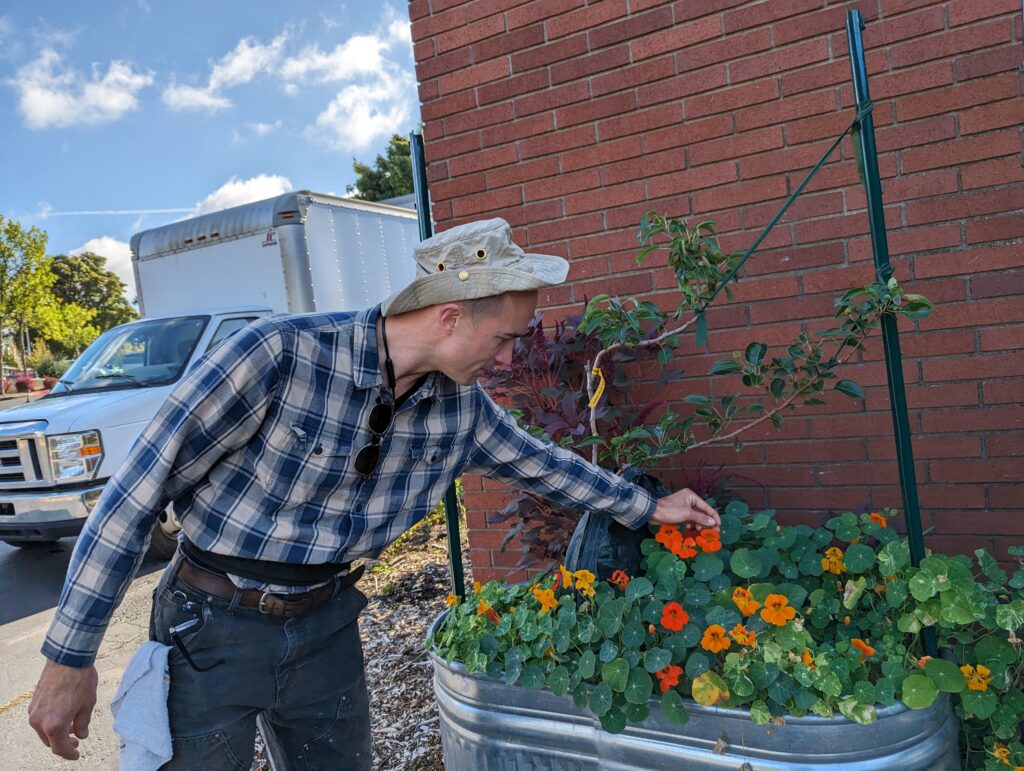
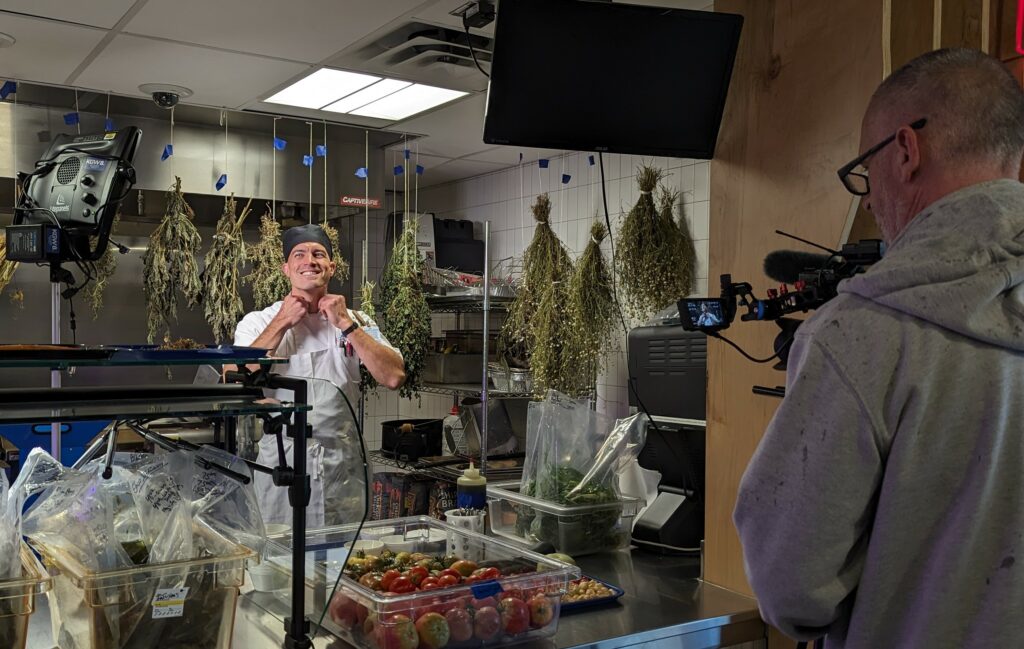
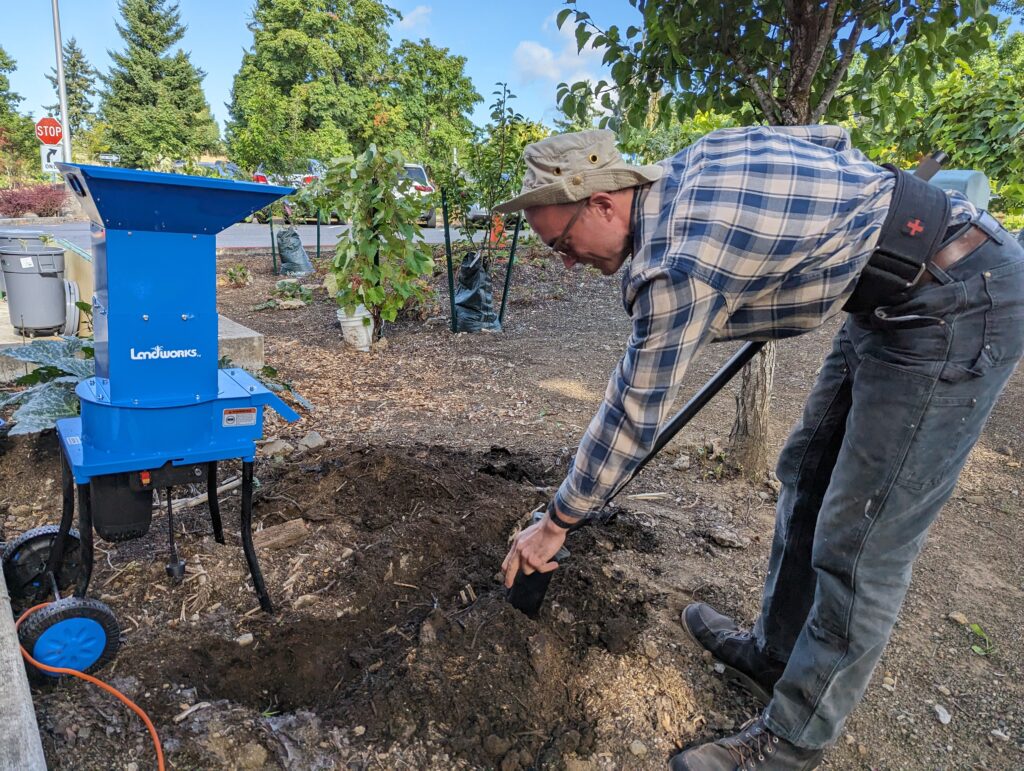
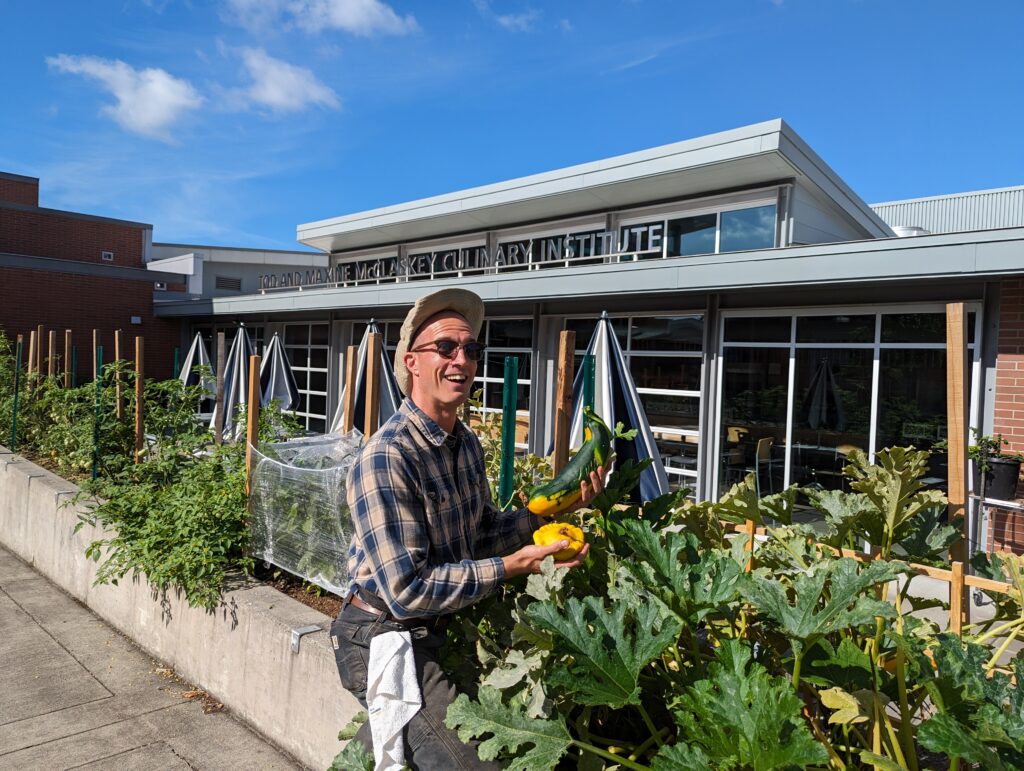
Not everything was free. About $8,000 in grant money was used to purchase some items, including the chipper, galvanized stock tanks they have repurposed as raised beds. Although some plants and seeds were donated, they also purchased others.
- Concrete planters along the north entrance to Gaiser Hall—and just steps from the McClaskey Institute—are bursting with tomatoes, squash, peppers and an assortment of fragrant herbs, including sage, mint, rosemary, sorrel, lovage, parsley and chives.
- Red grapes hang from the vines.
- Hops grow high above the roof.
- Thriving fruit trees include five different types of espalier apple and pear trees plus plum, quince and fig trees.
- A dozen varieties of sunflowers, which have edible petals and seeds. These were harvested earlier this month.
- Nasturtiums provide edible petals, a pretty garnish and an infusion in oils and vinegars.
- An assortment of edible wildflowers also attracts pollinators to the garden.
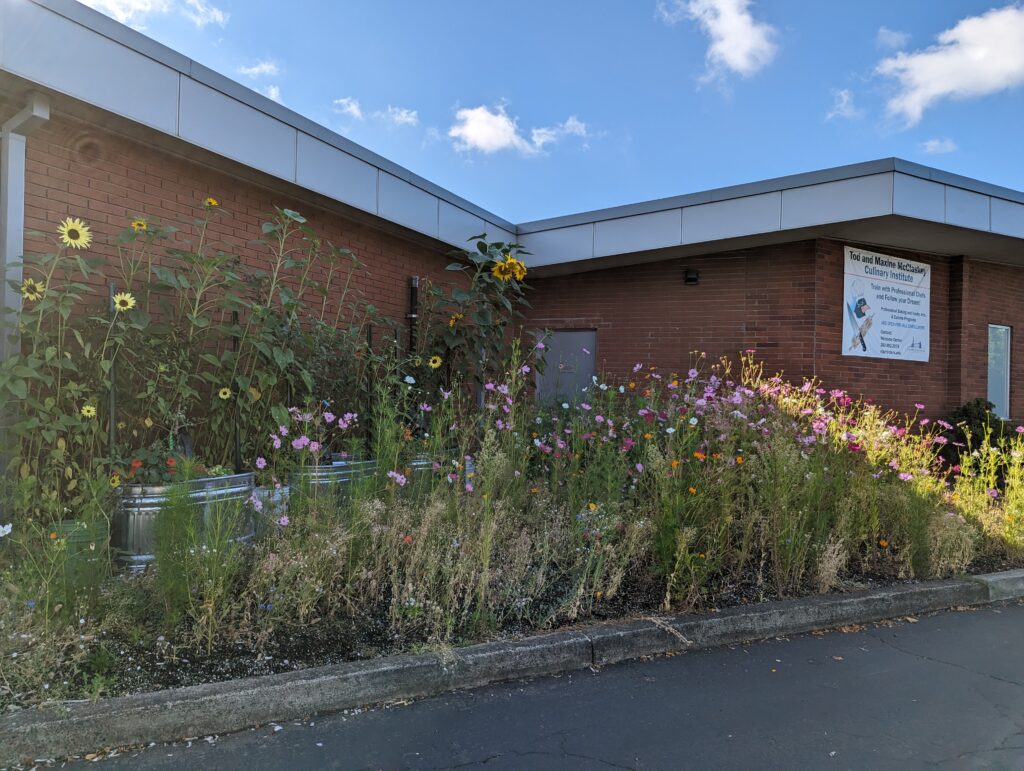
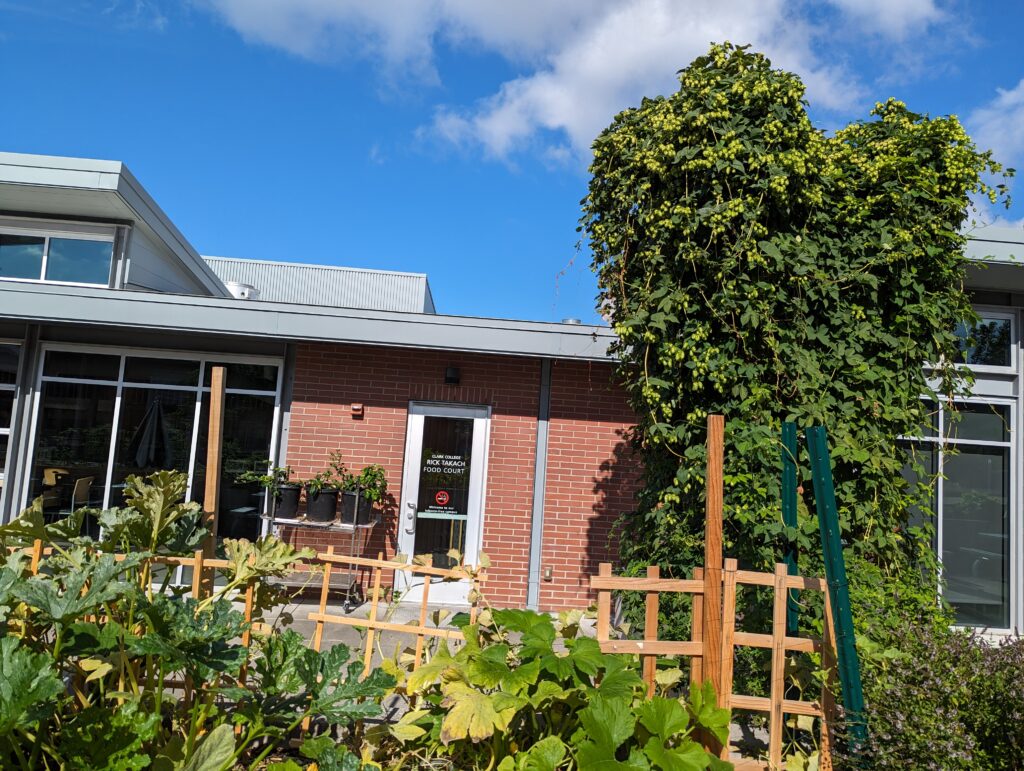
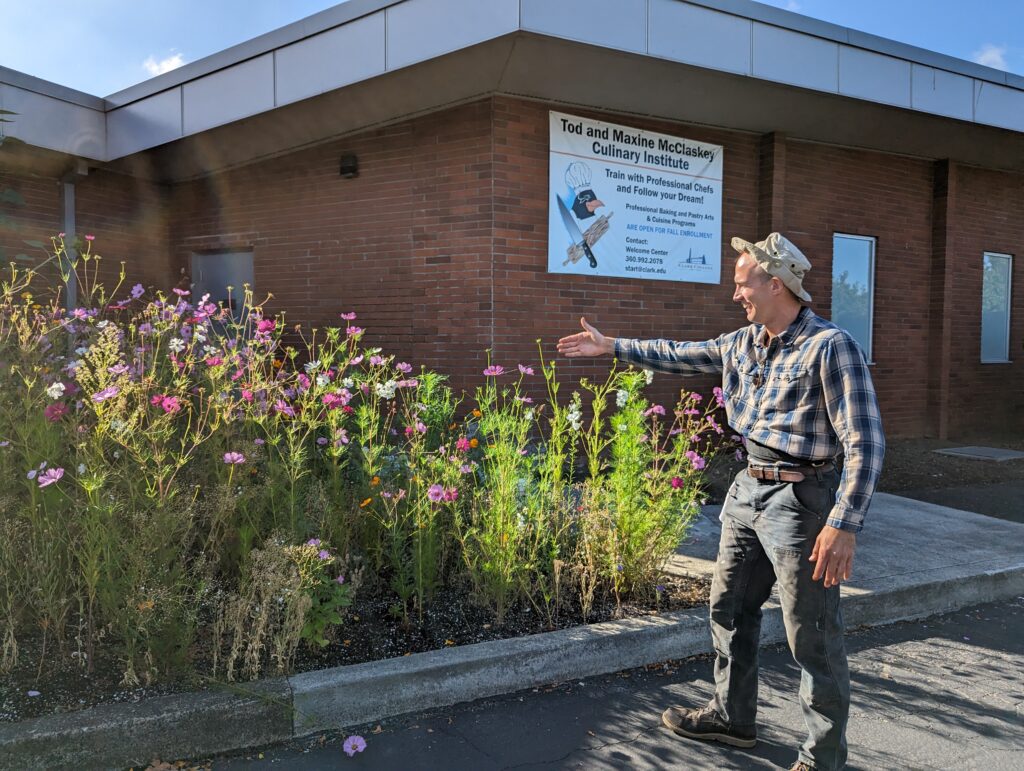
Shorten said that when she worked in the garden, the college community and the public stopped by to admire the garden.
“When I’ve worked in the garden, people always tell me how good it looks.” Shorten said. “The veterans on the other side of Fort Vancouver Way came over and told us how good it looks. One of the gals who works for ODEI brought us strawberry plants. It’s so nice to go out and sit with all the plants.”
Clark College has offered culinary education for more than 60 years. The Tod and Maxine McClaskey Culinary Institute at Clark College is the only public, accredited culinary program in the metro region that offers a two-year associate in applied technology degree. Clark’s program offers competitive programs, a seasoned team of instructors with real-world experience, a state-of-the-art culinary facility and collaborative industry partnerships. Learn more about Cuisine Management at Clark College here and Professional Baking and Pastry Arts here.

